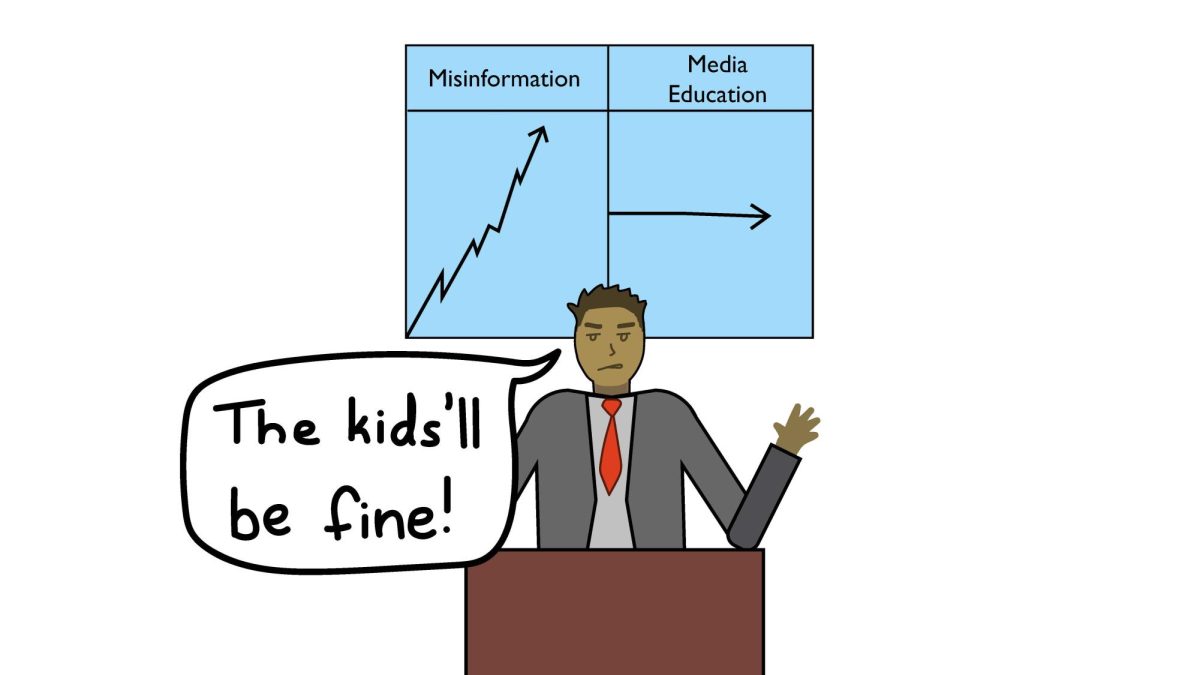The average high school student’s email inbox is overflowing with spam mail from obscure colleges. Proctors encourage high school students to opt in to College Board’s Student Search Service when they take the SAT and AP exams, explaining that Student Search will connect students with internships, scholarships and higher education opportunities. The College Board vaguely claims colleges will “connect with students” through Student Search. On their informational webpage about the Student Search Service, College Board claims students will gain 29% more offers of admission, equal to one additional admission offer, by opting in to the Student Search Service, compared to similar students who choose not to.
Despite being marketed as a tool to aid high school students with the college application process, College Board’s Student Search Service is misleading. It simply serves as a marketing tool for colleges, creating more of an inconvenience for students than an effective tool.
Student Search misleads students by limiting the type of colleges students receive mail from. Colleges paying for the Student Search Service can filter their mailing lists using AP and SAT score ranges. Limiting students to receiving mail from only a range of schools means they do not receive mail from their reach schools. This can imply students are not adequate for these schools, effectively discouraging them from trying to improve their performance to increase their chances of admission.
When students do not receive mail from a range of schools, it is especially harmful for those who take the SAT or AP tests their sophomore year. These students’ academic performances have the most opportunity to improve during the rest of their high school career, meaning the mail they receive from Student Search is not relevant to their actual capability.
Although Student Search is not the only way students receive information about colleges, Student Search could encourage students to aim for schools with requirements that challenge them during their high school career by sending mail from colleges with a range of rigor and selectiveness.
Despite sending hundreds of emails, the Student Search Service rarely provides students with useful information. Colleges write their emails with the objective of marketing their school to students, so the emails exclude important information like net price calculations, crime rates and nearby airports. Some of the mail does include information relevant to the college research process, such as graduation rates and facts about college towns. However, more often, the emails include vague and positive statements about school culture and what makes a school unique. When students actually begin researching schools, College Board’s Student Search emails are not a helpful place to begin gathering information because the incomplete information they give about schools can mislead students.
Even though Student Search is flawed, colleges still pay for the service. Student Search brings in $17 million each year from the 1,500 colleges and universities paying to use it, according to the New York Times. Most of the spam mail students receive is sent by obscure schools students likely would have otherwise never considered. For these schools, paying to get their name out could be beneficial, but only for the school. This is not beneficial for students with no interest in going to an obscure school in rural North Carolina unless they receive exceptional merit aid.
Aside from this lack of usefulness, communications from Student Search are impractical. The large volume of emails from colleges is a nuisance. The small fraction of them that are useful to students gets lost among the ones that are ignored. Even if a student unsubscribes from the Student Search Service, they have to individually unsubscribe from every one of the colleges’ mailing lists in order to stop receiving mail. College Board claims it created the Student Search Service in the interest of students, but the sheer difficulty of unsubscribing makes it clear that it prioritizes marketing for colleges over students’ best interest.
Students would do better to explore niche.com, College Confidential, actual college websites or colleges’ Common Data Sets for information. Paying attention to how colleges choose to portray their institution on their website provides information about what type of students the college aims to attract and the college’s values. Forum websites like niche.com give unfiltered accounts of college students’ experiences at colleges. College Confidential is a great resource for exploring options because it allows students to filter by GPA, location, SAT score, and major. Common Data Sets are reliable data published by colleges that include their acceptance rate and demographic data about their previous freshman class. Students can also attend college visits in the Career Center. And maybe decide not to opt in to Student Search when taking the SAT.











